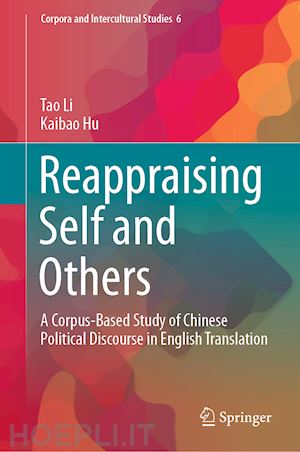Chapter 1 Introduction
1.1 Rationale
1.1.1 Appraisal System and appraisal epithets
1.1.2 The genre of political discourse
1.1.3 Corpus-based discourse analysis
1.2 Objectives and Research Questions
1.3 Significance of This Study
1.4 Organisation of the Thesis
Chapter 2 Research Background
2.1 The Overview of CTS
2.1.1 CTS in general
2.1.2 CTS in the Chinese context
2.1.2.1 Translation-oriented corpus compilation and processing
2.1.2.2 TU studies in the Chinese context
2.1.2.3 Linguistic patterns in Chinese-English language pair
2.1.2.4 Corpus-based studies on translational norm
2.1.2.5 Corpus-based studies on translator’s style
2.1.2.6 Corpus-based interpreting studies
2.2 Political Discourse
2.2.1 Political discourse in general
2.2.2 Political discourse analysis in the Chinese context
2.2.3 Political discourse in Translation Studies
2.3 Appraisal System
2.3.1 Appraisal System in discourse analysis
2.3.2 Appraisal System in corpus-based discourse analysis
2.3.3 Appraisal System in Translation Studies
2.4 Summary
Chapter 3 Theoretical Framework and Methodology
3.1 A Combined Theoretical Framework
3.1.1 The framework of Appraisal System
3.1.2 The Ideological Square model
3.1.3 Summary of theoretical framework
3.2 Methodology
3.2.1 Research methods
3.2.2 Corpus design
3.2.3 Data collection
3.2.3.1 Identification of appraisal epithets
3.2.3.2 Parallel concordances
3.2.3.3 Illustration of appraisal epithet tagging
3.2.4 Data analysis with comparison models
3.3 SUMMARY
Chapter 4 Translation of Appraisal Epithets in Chinese Political Discourse
4.1 Appraisal Epithets in Chinese Political Discourse
4.1.1 The distribution of appraisal epithets in Chinese political discourse
4.1.2 The frequency of appraisal epithets in Chinese political discourse
4.2 Translation of Appraisal Epithets in Chinese Political Discourse
4.2.1 Translation of Attitude epithets
4.2.1.1 Translation of affect epithets
4.2.1.2 Translation of judgement epithets
4.2.1.3 Translation of appreciation epithets
4.2.2 Translation of Engagement epithets
4.2.2.1 Translation of Engagement epithets in Self-category
4.2.2.2 Translation of Engagement epithets in Other-category
4.2.3 Translation of Graduation epithets
4.2.3.1 Translation of Graduation epithets in Self-category
4.2.3.2 Translation of Graduation epithets in Other-category
4.3 Summary
Chapter 5 Translation Patterns of Appraisal Epithets and Variations of Stance
5.1 Translation Patterns of Appraisal Epithets in Chinese Political Discourse
5.1.1 Translation patterns of appraisal epithets in general
5.1.2 Translation patterns of Attitude epithets
5.1.3 Translation patterns of Engagement epithets
5.1.4 Translation patterns of Graduation epithets
5.1.5 Translation patterns of China
5.1.6 Translation patterns of other countries
5.2 Variations of Stance Through Translating Appraisal Epithets
5.2.1 Variations of stance through translating Attitude epithets
5.2.2 Variations of stance through translating Engagement epithets
5.2.3 Variations of stance through translating Graduation epithets
5.2.4 Variations of stance through translating appraisal epithets
5.2.5 Variations of stance towards China and other countries
5.3 Theoretical Account for Translatioin Shifts and Variations of Stance
5.3.1 A Linguistic account
5.3.2 A Politeness account
5.3.3 An Ideological account
5.3.4 A further discussion
5.4 Summary











